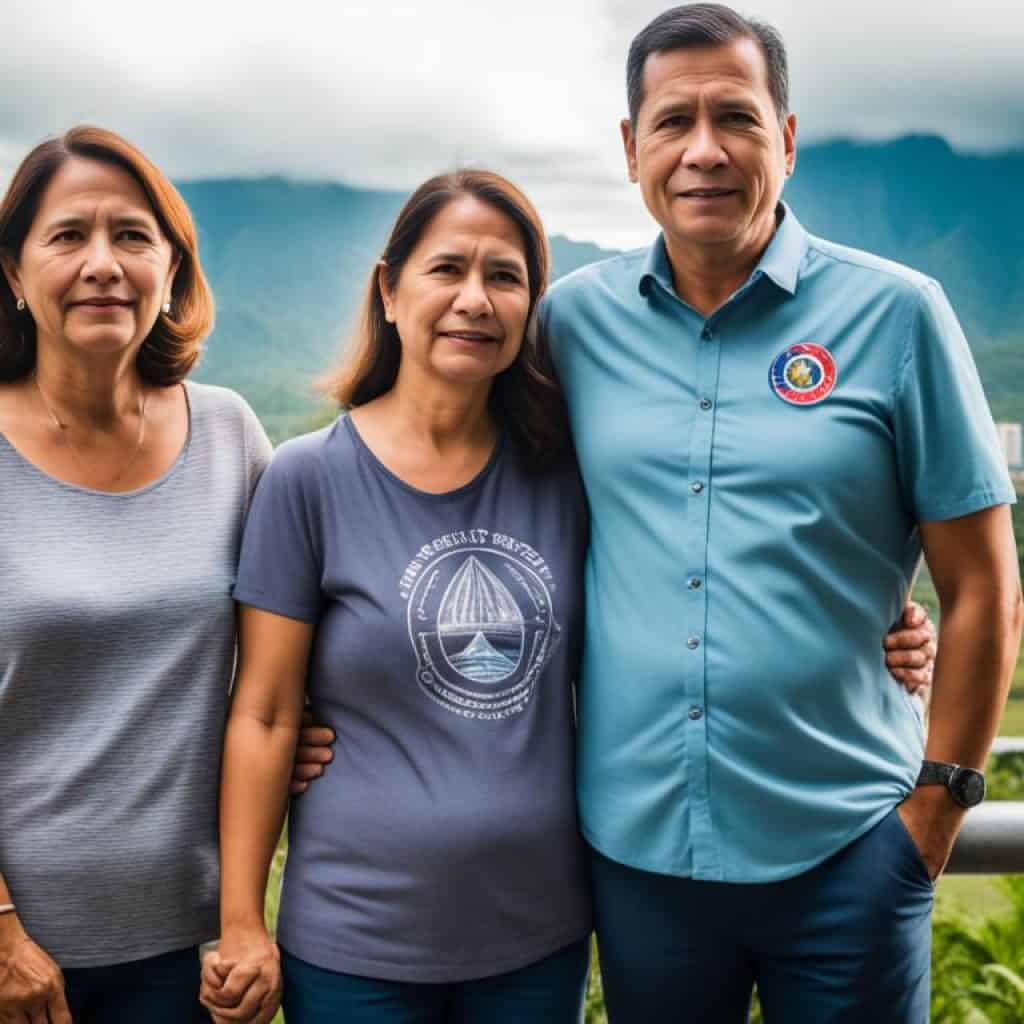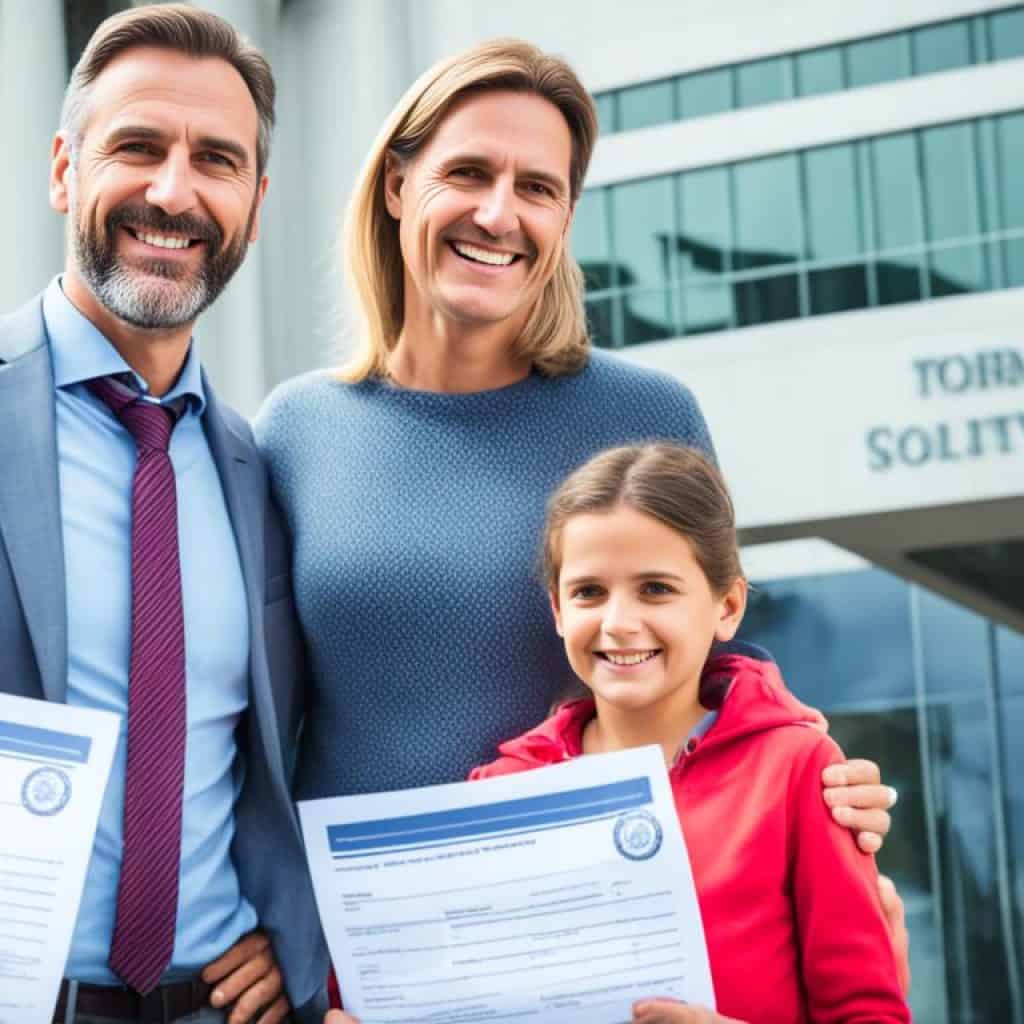Are you considering adoption in the Philippines? Wondering about the legal requirements and the process involved? Look no further, as we provide an in-depth guide to help you navigate through the adoption journey. Whether you’re a prospective adoptive parent or simply curious about adoption in the Philippines, this article will shed light on the steps, regulations, and misconceptions surrounding the adoption process. Get ready to explore the intricacies of adoption and discover how you can provide a loving home to a child in need.
Key Takeaways:
- The adoption process in the Philippines is governed by Republic Act No. 8552, known as the Domestic Adoption Act of 1998.
- Prospective adoptive parents need to determine their eligibility, attend an adoption seminar, choose an accredited agency, and prepare necessary documents.
- Undergo a home study assessment, go through matching and placement, and file a petition for adoption with the regional trial court.
- Post-adoption services provide ongoing support and assistance throughout the adoption journey.
- It’s important to address misconceptions about adoption in the Philippines, such as the eligibility of couples and LGBTQ individuals.
Legal Overview of Adoption in the Philippines
When considering adoption in the Philippines, it is important to understand the legal procedures and requirements that govern the adoption process. The adoption process in the Philippines is regulated by Republic Act No. 8552, also known as the Domestic Adoption Act of 1998. This law aims to safeguard the best interests of the child, ensure that adoptive parents are eligible and suitable, and streamline the adoption process.
Prospective adoptive parents must comply with certain legal requirements to proceed with the adoption process. Here is an overview of the key steps involved:
- Meet Eligibility Criteria: Prospective adoptive parents need to meet specific eligibility criteria set forth by the law. These criteria typically include age requirements, residency status, and marital status.
- Attend Adoption Seminar: Attend an adoption seminar conducted by the Department of Social Welfare and Development (DSWD). The seminar provides valuable information and guidance on the adoption process, legal rights, and responsibilities.
- Choose an Accredited Agency: Select an accredited adoption agency to assist with the adoption process. Accredited agencies have the necessary expertise and experience to guide prospective adoptive parents through each stage of the adoption.
- Gather Necessary Documents: Collect the required documents, such as birth certificates, marriage certificates (if applicable), income documents, medical certificates, and character references.
- Undergo Home Study Assessment: A home study assessment is conducted to evaluate the living environment and readiness of prospective adoptive parents to provide a suitable home for the child.
- Matching and Placement: Prospective adoptive parents will be matched with a child who is legally available for adoption. The DSWD and the adoption agency will facilitate the matching and placement process.
- File Petition for Adoption: Once a match is made, prospective adoptive parents need to file a petition for adoption with the regional trial court. The court will review the petition and make a decision based on the best interests of the child.
- Post-Adoption Services: After the adoption is finalized, adoptive families may receive post-adoption services to ensure a smooth transition and provide support.
The Role of Legal Assistance in the Adoption Process
Adopting a child in the Philippines involves navigating complex legal procedures and complying with specific requirements. Seeking legal assistance from a reputable law firm specializing in adoption law, such as Respicio & Co. Law Firm, can provide invaluable guidance and ensure that all legal requirements are met.
“Adoption is not just a legal process; it is a lifelong commitment to providing a loving and nurturing environment for a child. Having a legal professional by your side can help you navigate the adoption process with confidence and peace of mind.” – Respicio & Co. Law Firm

Practical Steps for Prospective Adoptive Parents
If you’re considering adopting a child in the Philippines, there are several practical steps you need to take to navigate the adoption process successfully. With careful planning and guidance from trusted professionals, you can make this journey a rewarding and fulfilling experience.
Determine Eligibility and Attend Adoption Seminar
Before embarking on the adoption process, it’s essential to determine your eligibility to adopt a child in the Philippines. The Department of Social Welfare and Development (DSWD) conducts an adoption seminar that prospective adoptive parents must attend. This seminar provides valuable information about the adoption process, legal requirements, and the responsibilities and challenges of adoptive parenthood.
Select a Reputable Accredited Adoption Agency
Choosing the right adoption agency is crucial to ensure a smooth and ethical adoption process. Look for a reputable adoption agency that is accredited by the DSWD. These agencies have met specific standards and regulations, ensuring that they adhere to ethical practices and prioritize the best interests of the child.
Gather Necessary Documents
To proceed with the adoption, you will need to gather all the necessary documents required by the adoption agency and government authorities. These documents typically include birth certificates, marriage certificates (if applicable), financial statements, medical certificates, police clearances, and other supporting documents. Compile these documents meticulously, as they will be thoroughly reviewed during the adoption process.
Undergo Home Study Assessment
A home study assessment is a critical step in the adoption process. It involves an evaluation of your home environment, family dynamics, financial stability, and overall readiness to provide a loving and stable home for a child. A qualified social worker or professional will conduct the home study assessment to ensure that your home is suitable for adoption.
Matching and Placement Process
Once you have completed the necessary assessments and evaluations, your adoption agency will initiate the matching and placement process. During this phase, the agency will match you with a child who is legally available for adoption and deemed a suitable match for your family. The agency will guide you through this process, ensuring that the matching is in line with the best interests of both the child and your family.
File a Petition for Adoption
After the matching process, you will need to file a petition for adoption with the regional trial court. This petition formally initiates the legal process of adopting the child. Working with a reputable law firm, such as Respicio & Co. Law Firm, can provide you with essential legal assistance throughout the adoption journey, ensuring compliance with all legal requirements.
Post-Adoption Monitoring and Support
Once the adoption is finalized, it’s important to be prepared for post-adoption monitoring and support. The adoption agency and government authorities will provide assistance and guidance to ensure a successful transition for both the child and your family. This support can include counseling services, post-adoption visits, and access to resources that can help address any challenges that may arise.
By following these practical steps and seeking professional assistance, you can navigate the adoption process in the Philippines with confidence, knowing that you are giving a child a loving and nurturing home. Remember, each adoption journey is unique, and patience and perseverance are essential qualities throughout this transformative experience.
The Role of the National Authority for Child Care (NACC)
The National Authority for Child Care (NACC) plays a vital role in facilitating adoptions in the Philippines. As a newly established office, the NACC was created by the Domestic Administrative Adoption and Alternative Child Care Act, also known as Republic Act No. 11642. This one-stop quasi-judicial agency focuses on alternative child care and aims to improve the adoption process by providing organization and coordination among all the necessary approval parts.
The NACC’s main objective is to ensure that children in need of adoption find loving and stable homes within a reasonable timeframe. To streamline the process, the NACC targets a timeframe of 6 months to under a year for the entire adoption process, from initial application to finalization.
By serving as the central authority for all adoption-related matters, the NACC collaborates with various stakeholders, including accredited adoption agencies, government entities, and individuals involved in the adoption process. This collaboration allows for efficient and effective decision-making, ensuring the best interests of the child are prioritized.
The NACC’s responsibilities include:
- Developing and implementing policies and programs that promote the welfare of children in need of adoption.
- Ensuring that prospective adoptive parents are thoroughly assessed and properly matched with eligible children.
- Monitoring the implementation of post-placement and post-adoption services to ensure the well-being of adopted children and their families.
- Offering support and guidance to local and international adoption agencies operating in the Philippines.
- Collaborating with relevant authorities to address any issues or concerns that may arise during the adoption process.
The NACC’s commitment to improving the adoption process in the Philippines helps create a supportive environment for both adoptive parents and children. With their expertise and dedication, the NACC plays a crucial role in facilitating successful adoptions and ensuring the best possible outcome for all parties involved.

Misconceptions About Adoption in the Philippines
Despite the importance of adoption in providing stable and loving homes for children, there are still misconceptions surrounding the adoption process in the Philippines. Addressing these misconceptions is crucial to promoting understanding and encouraging more individuals and couples to consider adopting from the Philippines.
Myth: Only Couples Can Adopt
One common misconception is that only married couples are eligible to adopt in the Philippines. However, this is not the case. The adoption process is open to both individuals and couples, providing opportunities for single individuals to embark on the journey of parenthood through adoption.
Myth: LGBTQ Couples Cannot Adopt
Another misconception is that LGBTQ couples are not eligible to adopt in the Philippines. In reality, there are no restrictions based on sexual orientation or gender identity when it comes to adoption. LGBTQ couples have the same rights and opportunities as other couples to provide a loving home for a child in need.
Myth: Adopting from the Philippines is Difficult
Some individuals may be deterred from adopting from the Philippines due to the misconception that the process is overly complicated or lengthy. While there are legal requirements and procedures to follow, adopting from the Philippines is a feasible and rewarding journey. With the guidance of reputable adoption agencies and legal professionals, prospective adoptive parents can navigate the process successfully.
“Adoption is not about finding children for families, it’s about finding families for children.”
– Joyce Maguire Pavao
By dispelling these misconceptions and raising awareness about the possibilities and requirements of adoption in the Philippines, we can encourage more individuals and couples to consider opening their hearts and homes to a child in need. Together, we can make a positive difference in the lives of these children.
| Misconception | Fact |
|---|---|
| Only couples can adopt | Adoptions in the Philippines are open to both individuals and couples, providing opportunities for single individuals to adopt. |
| LGBTQ couples cannot adopt | There are no restrictions based on sexual orientation or gender identity when it comes to adoption in the Philippines. |
| Adopting from the Philippines is difficult | While there are legal requirements and procedures, adopting from the Philippines is a feasible and rewarding journey with the right support. |
Steps to Adopting Within the Philippines
Are you considering adopting a child within the Philippines? The domestic adoption procedure involves several important steps that will guide you throughout the process. Here is a breakdown of the main steps:
- Attend orientation and pre-application seminars to gain a comprehensive understanding of the adoption process and requirements.
- Submit all the required documents, including personal identification, financial statements, and medical clearances.
- Undergo a home study and evaluation, where a social worker will visit your home, assess your living conditions, and gather information about your family and support system.
- Go through the matching and placement process, where the adoption agency will identify a child who is a suitable match for your family.
- File a petition for adoption with the court, which includes submitting all the necessary documents and payment of fees.
- Attend a court hearing, where the judge will evaluate your suitability as adoptive parents and finalize the adoption.
- Comply with post-adoption requirements, such as attending post-placement visits and submitting reports to ensure the child’s well-being.
The timeline of the adoption process can vary depending on individual circumstances and any changes in the legal procedures. It is important to stay in close communication with your adoption agency and legal representatives throughout the journey.
Adoption Process Timeline
| Step | Duration |
|---|---|
| Orientations and Pre-Application Seminars | Varies |
| Document Submission | Varies |
| Home Study and Evaluation | Approximately 3-6 months |
| Matching and Placement Process | Varies |
| Petition for Adoption with the Court | Varies |
| Court Hearing and Finalization | Approximately 6-8 months |
| Post-Adoption Requirements | Ongoing |
Each step is crucial in ensuring a successful adoption process and providing a loving home for a child in need. For more detailed information and a personalized guide, consider seeking legal assistance from Respicio & Co. Law Firm.

International Adoption from the Philippines
International adoption from the Philippines offers a unique opportunity for prospective parents looking to expand their family. However, it involves additional clearances and procedures to ensure the best interests of the child and comply with international adoption regulations.
When pursuing international adoption from the Philippines, prospective adoptive parents must obtain clearances from the Inter-Country Adoption Board (ICAB) and the government of their home country. These clearances are necessary to establish the adoptive parents’ eligibility and suitability to provide a loving and nurturing home for the child.
The timeline for international adoption can vary greatly depending on the country in which the adoptive parents reside. It is important to note that the process may take anywhere from 1 to 2 years to complete. This timeframe accounts for the necessary paperwork, evaluations, home visits, and other legal requirements involved in international adoptions.
If you are considering international adoption from the Philippines, it is highly recommended to seek guidance from adoption agencies and legal professionals familiar with the process. They can provide valuable support and ensure compliance with international adoption regulations, making the journey smoother and more successful.
International Adoption Table
| Step | Description |
|---|---|
| 1 | Research and learn about the requirements and process for international adoption from the Philippines. |
| 2 | Contact adoption agencies and legal professionals specializing in international adoption to gather information and seek guidance. |
| 3 | Complete the necessary paperwork and documentation required by the Inter-Country Adoption Board and the adoptive parents’ home country’s government. |
| 4 | Undergo home visits, interviews, and evaluations to determine the eligibility and suitability of the adoptive parents. |
| 5 | Receive clearance from the Inter-Country Adoption Board and the government of the adoptive parents’ home country. |
| 6 | Prepare for travel to the Philippines to meet the child and finalize the adoption process. |
| 7 | Complete any necessary post-adoption requirements and begin the journey of building a life together. |
Step-Parent Adoption in the Philippines
Step-parent adoption in the Philippines is a legal process that allows a step-parent to become the legal parent of their spouse’s child. It is an important decision that requires careful consideration and adherence to specific requirements. To navigate the step-parent adoption process successfully, it is advisable to consult with a lawyer specializing in family law.
One of the key legal requirements for step-parent adoption in the Philippines is obtaining consent from the biological father of the child. This ensures that all parties involved are aware of and agree to the adoption process. It is essential to approach this conversation with sensitivity and focus on the best interests of the child.
After obtaining consent, it is necessary to prepare the required legal documents. These documents typically include an application form, an affidavit of consent, and other supporting documents to establish the eligibility and suitability of the step-parent to adopt.
Understanding the step-parent adoption procedure is crucial. This process involves submitting the necessary paperwork to the regional trial court, attending court hearings, and completing any additional steps required by local regulations. The court will evaluate the adoption application and determine whether the adoption is in the child’s best interests.
The step-parent adoption process in the Philippines can be a lengthy one, involving various legal complexities along the way. It is essential to be patient and prepared for potential delays. Having the guidance and expertise of a trusted law firm like Respicio & Co. can help streamline the process and navigate any legal challenges that may arise.
Respicio & Co. Law Firm specializes in family law matters, including step-parent adoption. Their experienced team can provide comprehensive legal assistance and support throughout the step-parent adoption process, ensuring compliance with all the necessary requirements.
If you are considering step-parent adoption in the Philippines, reach out to Respicio & Co. Law Firm for expert guidance and support. Their compassionate and knowledgeable team is dedicated to helping families navigate the adoption process and create a loving and secure environment for children.
Step-parent Adoption Requirements
| Requirement | Description |
|---|---|
| Consent from Biological Father | The step-parent must obtain consent from the child’s biological father, acknowledging the intention to adopt. |
| Legal Documents | Prepare and submit the necessary legal documents, including an application form, affidavit of consent, and supporting evidence of eligibility. |
| Court Proceedings | Attend court hearings and complete any additional steps required by the regional trial court. |
Conclusion
Embarking on the journey of adopting a child in the Philippines is a significant and rewarding experience. It is crucial to familiarize yourself with the legal requirements and procedures to ensure a smooth and successful adoption process. By understanding and following the guidelines set forth by Republic Act No. 8552, you can protect the best interests of the child and provide a loving and nurturing home.
Throughout the adoption process, it is advisable to seek professional legal assistance, such as from Respicio & Co. Law Firm, to navigate any complexities or uncertainties that may arise. Their team of legal experts can guide you through the necessary steps, ensuring compliance with all requirements and regulations.
Adopting a child in the Philippines is a transformative experience, not only for the child who finds a forever family but also for the adoptive parents who open their hearts and homes. The adoption process is designed to prioritize the welfare and future of the child, and by approaching it with dedication, compassion, and adherence to the legal procedures, you can contribute to creating the loving and supportive environment every child deserves. If you have any further questions or need professional legal assistance, do not hesitate to reach out to Respicio & Co. Law Firm.


















Add comment